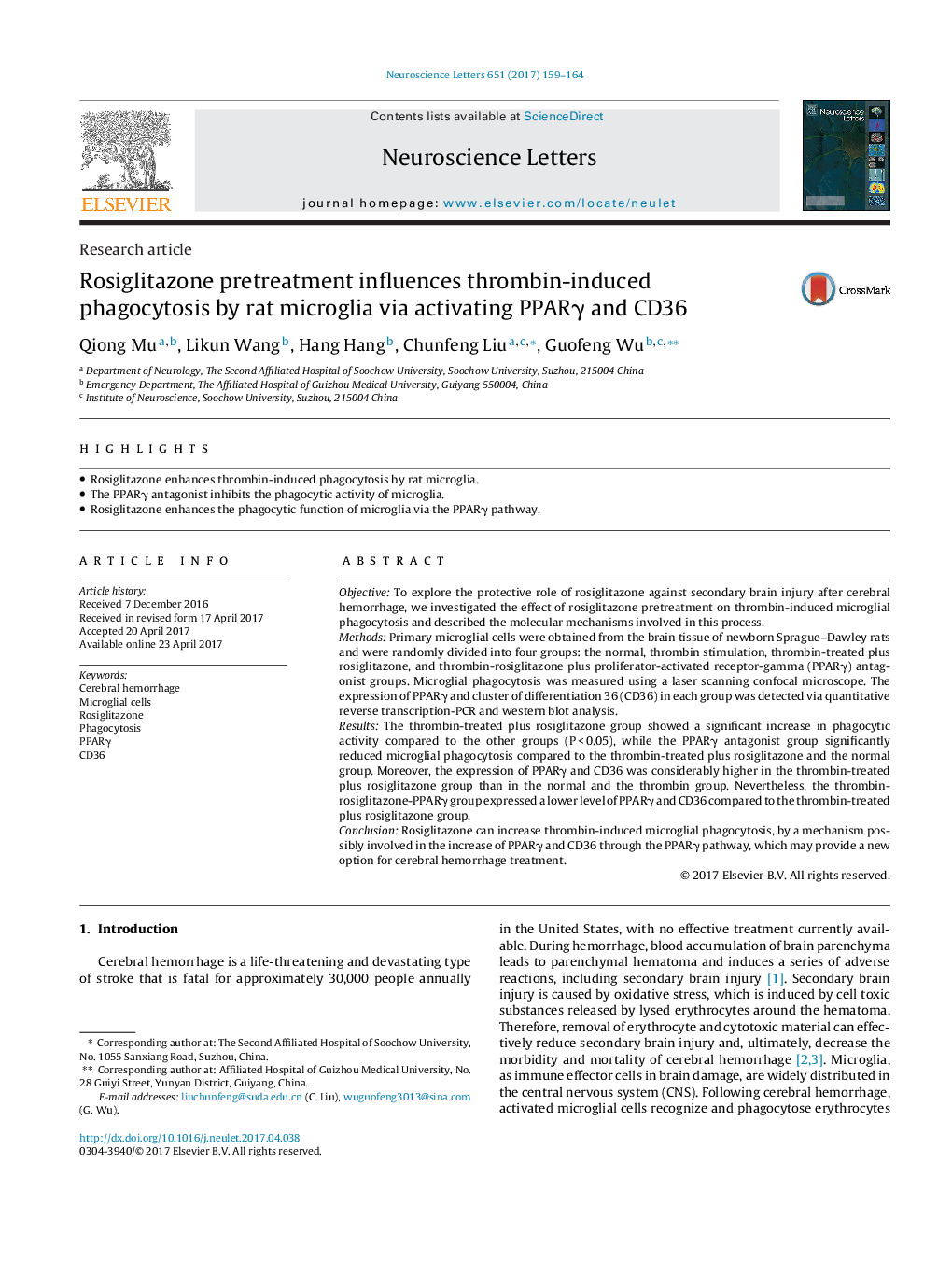| Article ID | Journal | Published Year | Pages | File Type |
|---|---|---|---|---|
| 5738214 | Neuroscience Letters | 2017 | 6 Pages |
â¢Rosiglitazone enhances thrombin-induced phagocytosis by rat microglia.â¢The PPARγ antagonist inhibits the phagocytic activity of microglia.â¢Rosiglitazone enhances the phagocytic function of microglia via the PPARγ pathway.
ObjectiveTo explore the protective role of rosiglitazone against secondary brain injury after cerebral hemorrhage, we investigated the effect of rosiglitazone pretreatment on thrombin-induced microglial phagocytosis and described the molecular mechanisms involved in this process.MethodsPrimary microglial cells were obtained from the brain tissue of newborn Sprague-Dawley rats and were randomly divided into four groups: the normal, thrombin stimulation, thrombin-treated plus rosiglitazone, and thrombin-rosiglitazone plus proliferator-activated receptor-gamma (PPARγ) antagonist groups. Microglial phagocytosis was measured using a laser scanning confocal microscope. The expression of PPARγ and cluster of differentiation 36 (CD36) in each group was detected via quantitative reverse transcription-PCR and western blot analysis.ResultsThe thrombin-treated plus rosiglitazone group showed a significant increase in phagocytic activity compared to the other groups (P < 0.05), while the PPARγ antagonist group significantly reduced microglial phagocytosis compared to the thrombin-treated plus rosiglitazone and the normal group. Moreover, the expression of PPARγ and CD36 was considerably higher in the thrombin-treated plus rosiglitazone group than in the normal and the thrombin group. Nevertheless, the thrombin-rosiglitazone-PPARγ group expressed a lower level of PPARγ and CD36 compared to the thrombin-treated plus rosiglitazone group.ConclusionRosiglitazone can increase thrombin-induced microglial phagocytosis, by a mechanism possibly involved in the increase of PPARγ and CD36 through the PPARγ pathway, which may provide a new option for cerebral hemorrhage treatment.
